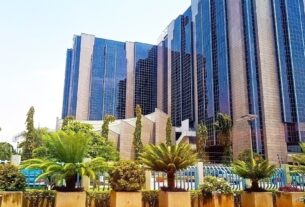“We are removing and we’ve removed these roadblocks. These roadblocks include multiple taxation and levies, customs duties and various levies that are imposed on businesses, and infrastructure decay, including power.”
The Federal Government of Nigeria has approved the ratification of the Investment Promotion and Protection (IPPA) agreements between Nigeria and the United Arab Emirates (UAE).
Doris Uzoka-Anite, minister of trade and investment, confirmed this while briefing journalists after Wednesday’s Federal Executive Council (FEC) meeting presided over by President Bola Tinubu.
According to Uzoka-Anite, “With the approval, the Federal Government will forward the already-signed IPPA agreements to the National Assembly for ratification.”
The minister said her ministry can now invoke Article 26 of that agreement, which gives it a mandate to review and amend some sections of the IPPA to conform with the current IPPA model in use, which is a 2016 model.
According to the minister, “We will immediately proceed to invoke the section that will enable us to review and amend the sections that were not originally viewed to be favourable.
On the rising cost of goods and services, as well as the high cost of doing business in Nigeria, the minister said FEC deliberated on how to improve the manufacturing sector
“We deliberated on how we could improve the business environment for manufacturers and industrialists.”
She noted that the priority of the Tinubu administration was to promote and protect local industries and manufacturers and this will mean that we must do all that is necessary to remove all the roadblocks and bottlenecks impeding or impacting businesses.
“The president has always reiterated that Nigeria is open for business and that there are no more roadblocks.
“We are removing and we’ve removed these roadblocks. These roadblocks include multiple taxation and levies, customs duties and various levies that are imposed on businesses, and infrastructure decay, including power.”
The minister, who recalled that the president already set up the Presidential Council on Industrial Revitalisation, as well as the Presidential Council on Fiscal Reform and Tax Policy Review, added that “the president has mandated that this council must fast-track their reports and their reviews and come up quickly with their recommendations so that the real sector and the citizens can begin to feel the impact of the Renewed Hope Agenda.”
While the Presidential Council on Industrial Revitalisation was set up in October, the Presidential Council on Fiscal Policy and Tax Review was set up in July 2023.
“The FEC noted that when this committee finalises its review and comes up with its reports, we will be implementing policies that will jumpstart the economy again and see us experiencing a double-digit growth rate in the GDP, as well as being on track to achieve the vision of His Excellency to achieve a $1trn economy.”





